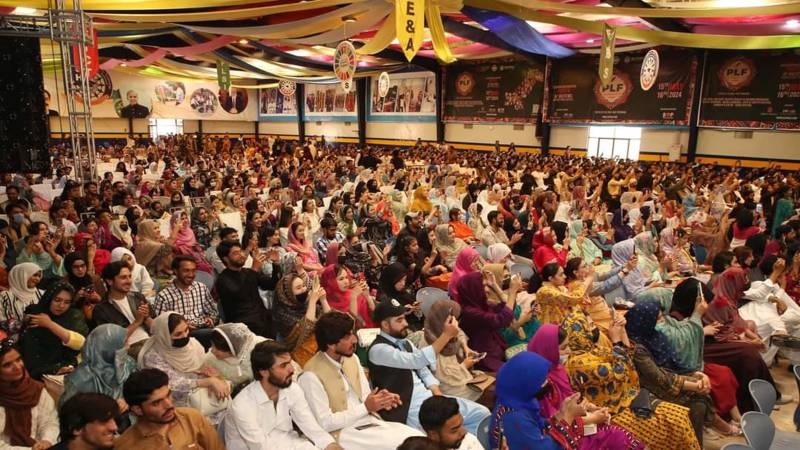
Intelligentsia, politicians, civil society, journalists, human rights activists, literary figures, women’s rights activists, youths, and students from across the province joined the Pakistan Literary Festival held in Quetta—a capital well-known for its agitations, reservations, and lesser share in the federal cake despite contributing much more than others. In this context, the rights to information and political rights of the public were the main themes debated in two different sessions of the festival. The Pakistan Literature Festival was held on 15 and 16 May in Quetta at the Balochistan University of Information Technology and Management Sciences (BUITEMS). It was organised by the government of Balochistan in collaboration with the Arts Council of Karachi. People from showbiz, literature, media, and students of schools, colleges, universities, and the general public were invited. Various stalls were arranged by students and staff, showcasing different food items, books, art pieces, hand embroideries, and crafts for sale.
The inauguration of the event was done by the president of the Arts Council of Pakistan Karachi, greeting various delegates. The chief guest was Abdul Khaliq Khan Achakzai, Speaker of the Provincial Assembly of Pakistan, and the guest of honour was Syed Zulfiqar Ali Shah. Other notable guests included Khalid Hafeez and Huma Mir. The delegates addressed the audience with their compelling words, and the function began with the national anthem. Additionally, different awareness sessions were held for students to enhance their critical thinking.
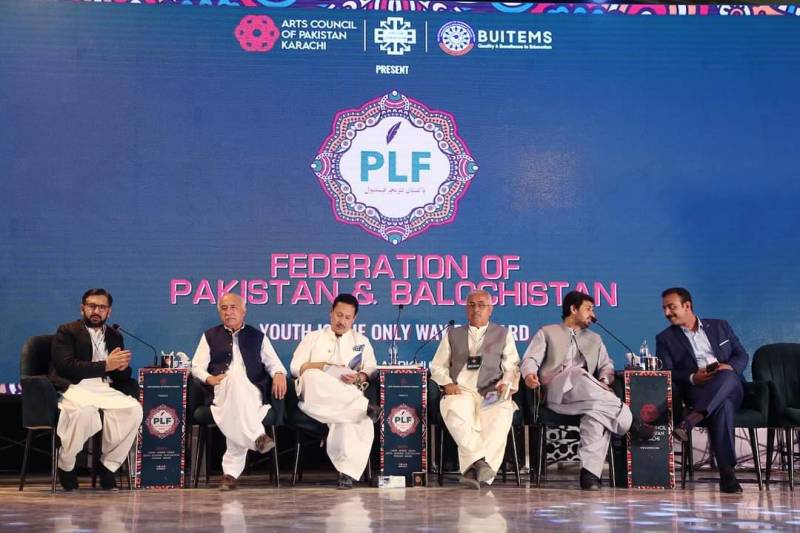
The first day's session focused on media literacy and critical thinking, empowering Balochistan’s youth to navigate social media challenges. The panellists included MNA Jamal Raisani, Commissioner Quetta Muhammad Hamza Shafqaat, and Chairman of Media Studies University of Balochistan Dr Babrak Niaz. The main theme was how to analyse fake news circulating on social media and how the youth and general public can combat it. The first question, raised by host Humna Malik to Mr Jamal Raisani, was about why 'X' is banned in Pakistan, as it was a platform for youth to highlight their issues.
Raisani responded that social media should not be banned, as it is a platform that improves critical thinking among youth. Banning it is not the solution, and suppressing youth from expressing their ideas may lead to frustration and potentially to crime. He added that the false narrative of limited freedom of speech needs to be challenged and that this issue will be taken to the national assembly for long-term initiatives. Raisani also suggested that there should be regional headquarters for every social media platform.
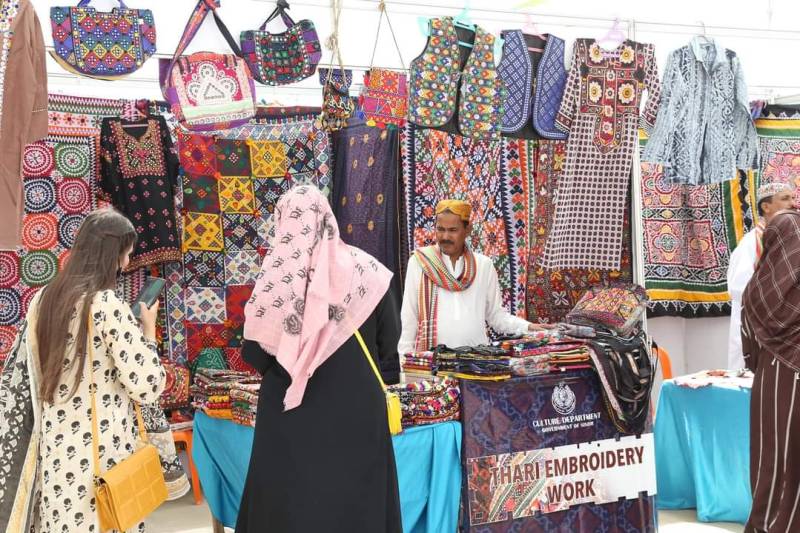
Dr Babrak Niaz emphasised that media literacy is a science. Unfortunately, in Pakistan, even literate individuals consume media content without critical analysis, making them victims of misinformation, disinformation, and fake news. He stressed that media literacy is the key to countering false information, and youth should be given platforms and opportunities to ask questions and build alternative narratives.
Muhammad Hamza Shafqaat highlighted the need for the government to work alongside social media with ethical values and transparency.
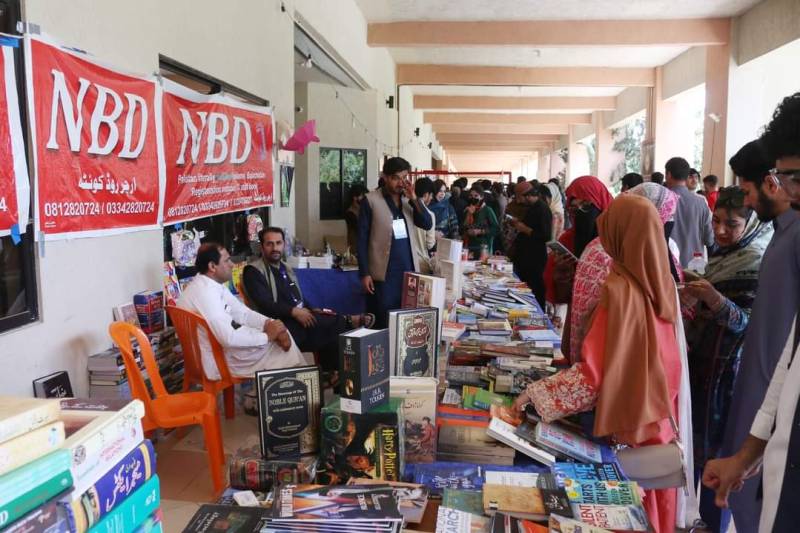
A student from the audience asked if it was not a betrayal of youth to label and award as national heroes those who violated Balochistan’s peace while in government. Jamal Raisani responded by asserting that the Right to Information Act, implemented in other provinces, should also be enforced in Balochistan. He emphasised that accountability is crucial, regardless of who is in power, and that political dynasties should be eradicated.
Pakistani superstar Mahira Khan was the main highlight of the occasion. However, an unfortunate incident occurred when Mahira was on stage, and someone threw something at her
Another session focused on the federation of Pakistan and Balochistan. The panelists were Dr Abdul Malik Baloch, Mr Zahoor Ahmed Buledi, Mr Sanaullah Baloch, Mr Abdul Rahim Ziaratwal, and Mr Shahid Rind, with Saleem Safi serving as the moderator. Saleem Safi asked Dr Malik about Balochistan's complaints regarding the federation. Dr. Malik explained that in Pakistan, politicians, the judiciary, the media, and the establishment have suppressed people's rights since the country's formation, leading to strained relations between Balochistan and the federation. The primary issue is the lack of powerful representation from Balochistan. Additionally, social and political obstacles prevent people from exercising their right to vote in Balochistan, and the insurgency and issue of missing persons could be resolved through debates and negotiations rather than force, stated Dr Abdul Malik Baloch.
Mr Ziaratwal was then asked to share his perspective but was interrupted despite requesting time to elaborate. Saleem Safi apologized, suggesting they focus on solutions. Sanaullah Baloch highlighted the economic disparity, stating that while Balochistan provides gas worth many hundreds of billion rupees at a subsidised price to industries and fertiliser production, and yet the province itself still suffers from a lack of electricity.
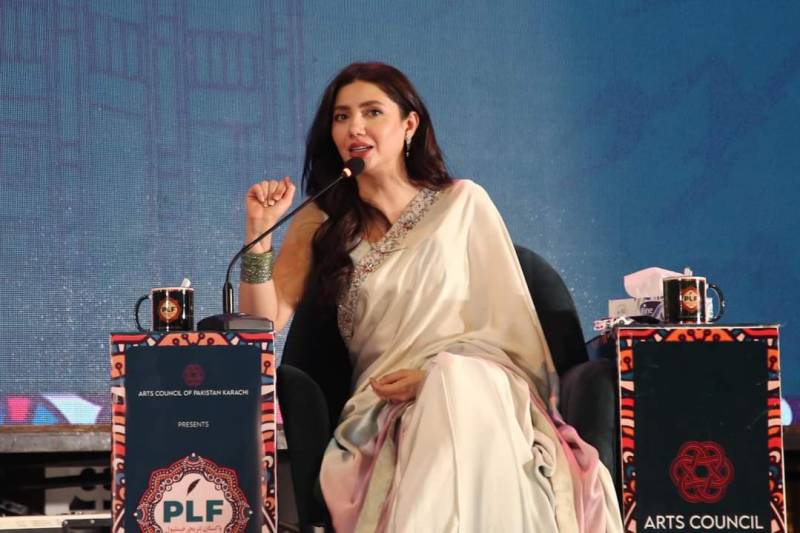
Many figures from the entertainment industry were also invited to participate. Among them were Adnaan Sidiqui, Bushra Ansari, and Yasir Hussain. Pakistani superstar Mahira Khan was the main highlight of the occasion. However, an unfortunate incident occurred when Mahira was on stage, and someone threw something at her. Mahira was initially shocked but managed the situation very well. The incident quickly spread across social media, and people from Balochistan were unfairly targeted. Mahira Khan herself took to social media to express her view of the unfortunate incident:
I attended the PLF on the first day and honestly found it amazing. I was exposed to various types of stalls, including cultural items, foods, books, and more. Numerous programs related to literature and history were taking place in different halls, providing very informative content.
Later on, the concert, poetry program, and presence of a superstar added fuel to the fire of public interest. I thoroughly enjoyed and appreciated such events occurring in Quetta, Balochistan," said Shakeela, a student of Balochistan University.
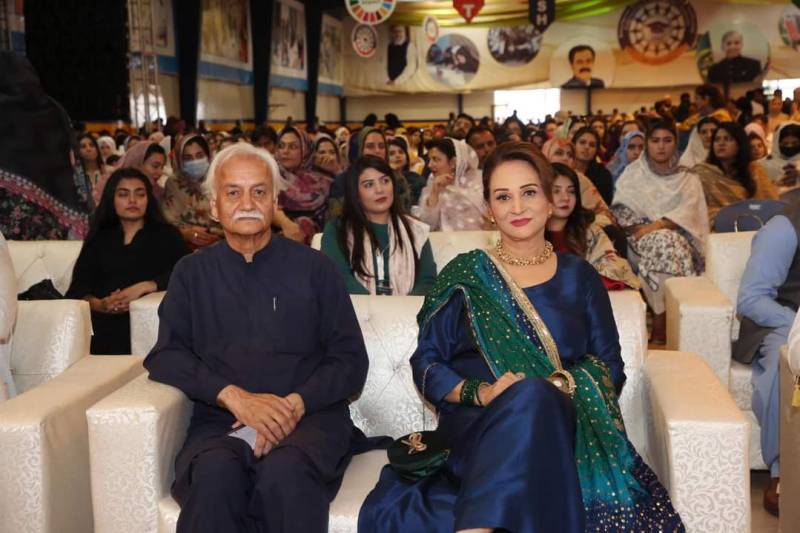
The event was a great success, with engaging sessions and inspiring speakers. It was particularly interesting for attendees to have the perspective of celebrities like Mahira Khan, Bushra Ansari, and others, sharing their thoughts and reviews about literature.
The festival was well-organised, with a lot of interesting activities and discussions. "The PLF at BUITEMS was a wonderful event that brought together people from all over the country to celebrate learning and literature," said Ghufran Haider, a student of BUITEMS University.
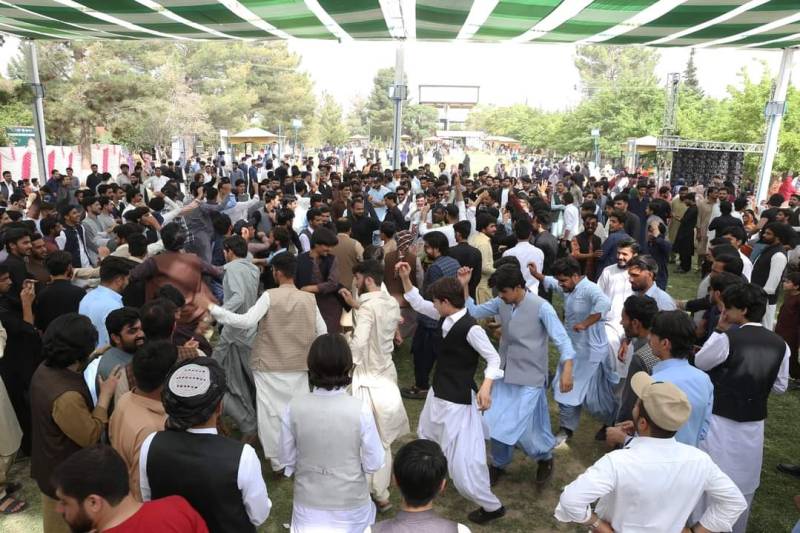
Although Balochistan faces various human rights violations, issues of economic empowerment, and disturbances in relations with neighbouring Iran and Afghanistan, the Chaman sit-in—a popular movement for the last seven months asking for easement rights and people-to-people contact with Afghanistan—has stirred significant attention. The issue of Gawadar fencing, which has sparked another debate following Chinese investment, is viewed as an invasion of Baloch lands.
Such topics are yet to find space in national-level debates. It is hoped that these gatherings will echo the voice of the public in a genuine way instead of diverting from the public-centric genuine political, social, rights, and economic issues in the future.

